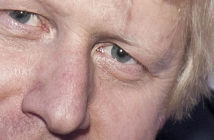
We built The Descrier on the belief that the internet is the great equaliser, that voices that are interesting and accurate will filter to the top, and they can exist outside the elite club of traditional top-down print media. With that in mind, it seems to me utterly absurd that we would be governed by a regulator set up to reign in the worst of the traditional press that relied upon illegally trampling over privacy to find personal stories.
The Royal Charter agreed upon by the three main parties is so broad and vague that it lacks a definition of what it is there to govern. It is pretty clear that the idea was to govern traditional newspapers, but what about individual bloggers or twitter users that many now use as news resources? What about organisations such as ours that aim to filter some of these independent sources into the mainstream? Where are the lines drawn?
The last time England had a law that governed the press was under the Licensing order of 1643, which lapsed in 1694, but apparently public opinion has swayed the politicians that the last three hundred years were a mistake. Newspapers, media organisations, and journalists are not above the law, and those that hacked phones or broke any other law of the land should be punished. These individual acts of illegality, however, should not force those innocent of these crimes under stricter regulations.
These broad strokes that are catching all of traditional media within their grasp, more depressingly will also cover all internet users. It demonstrates a digital illiteracy within the political elite, a complete misunderstanding of the ebbs and flows of digital information, where the writings of anonymous bloggers can profoundly change debates, and where everybody has the ability to republish and add their comments.
Under the “key definitions” of the Charter, anyone with a blog, Tumblr, Twitter account, or Facebook account could be considered a “relevant publisher” if they talk about current affairs, public figures, or celebrities in any way. The internet has blurred the line between speech and print to such an extent, that whilst Twitter users may believe their tweets to be speech, the law including this Charter would define them otherwise.
These changes to modern life should have been taken into account when drafting legislation that will have such a dramatic effect on it, but there was no real scrutiny as the parties rushed to find consensus at 2:30am. This Charter, in reality, would do little to help the McCanns or Hugh Grant or anyone else trampled upon by the press leading up the the Leveson Inquiry. We already have laws for prosecuting such crimes, and they should be enforced by the police, with this broad and vague proposal changing little if anything in those cases. The result of this Charter will be a chilling effect across digital and social media, pushing people away from sharing their ideas, thoughts, and comments lest they find themselves in front of the “Recognition Panel” as a relevant publisher.
We cannot and will not support a bill that will have no impact on those originally intended to protect, but which in reality is a power grab by the political elite hoping to reign in a press that has exposed their corruption in recent years. The public deserve a free press, but more than that they deserve to be able to discuss news and current events on Twitter, Facebook, and any new tools that appear in the future without the fear of being classed as a publisher under the law.





2 Comments
Hi,
Why The Descrier Won’t Sign the Royal Charter. Right so !
This quickly made “Bog Up” is a George Orwell reference to the British
political system with Mr. Cameron as Shepherd and the flocks of sheep of the
political system following the Christmas Star at Easter.
Thanks for the support Terrence!